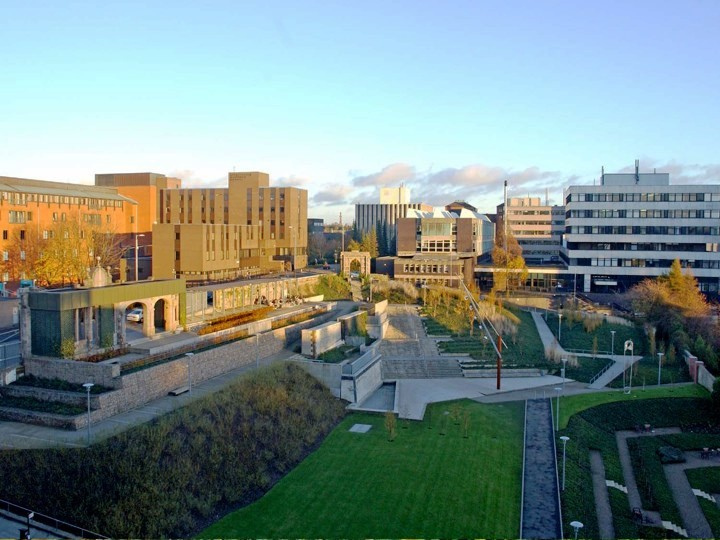The workshop day, titled ‘Semantic Spaces at the Intersection of NLP, Physics, and Cognitive Science’, was part of a larger Quantum Physics and Logic (QPL) conference held at the University of Strathclyde. The workshop focussed on computational approaches to modelling semantics and semantic relations in language. The day was divided into three parts: the first session was concerned with the application of principles derived from physics and formal logic to the expression of linguistic phenomena; the middle section segued this into consideration of Natural Language Processing (NLP); whilst the final section covered cognitive science and cognitive linguistics’ views of semantics. My interest in attending this was to get an idea of the approach which ‘hard science’ is taking to aspects of semantics which overlap with the research of the Linguistic DNA project, as well as to see if there were anything that we might be able to apply to our own work.
A subject which struck a chord was the discussion of vector space modelling, which is near the top of our list of topics to be implemented as we approach the point where we move from identifying word pairs to establishing clusters of related words. The subject was touched on in several of the papers, with particular relevance to the final paper of the day, in which Stephen McGregor described work done by himself and colleagues to locate ‘subspaces’ within vector space models which delineate an analogical relationship between different words. Beginning with an SAT-style statement that ‘dog is to cat as puppy is to kitten’, the paper used PMI measurements as a basis on which to plot these words in vector space, and then examined the geometrical relationship of the points to demonstrate how it might be possible to define a subspace within the vector space and thus automatically identify the positions of analogical partners words or concepts.
The NLP section of the workshop was dominated by Categorical Compositional Distributional semantics and the ways in which researchers using this approach are mapping the emergence of meaning from syntactic structure. The morning’s physics papers had discussed in some detail the application of formal logic expressions to sentence semantics, describing, for example, the way in which a transitive verb combines with subject and object nouns to ‘output’ the meaning of the sentence. These papers applied this theoretical approach to specific sentence elements, such as Dimitri Kartsaklis’ analysis of coordination and Mehrnoosh Sadrzadeh’s study of quantifiers. To me, these papers chimed with work Seth has been doing, considering the importance of handling different parts of speech in different ways during processing; they made clear the flaws in the so-called ‘bag-of-words’ approach to computational linguistics and highlighted that, in the long run, consideration of syntax should be an important part of the kind of computational semantics we’re undertaking.
Also of special interest was Peter Gärdenfors’ consideration of domains as components of word meanings. In the main, the point was illustrated through consideration of nouns (although touching on other parts of speech), asking whether it might be helpful to think of words as fundamentally dependent on domains such as place, shape, and temperature (so that, for example, ‘round’ maintains some connection to the sense of a curve in physical space even when not used as a noun, whilst most ‘verbed’ nouns retain important connections to their parent’s referent). Whilst bearing mostly indirect applicability to current LDNA work, this discussion is important food for thought, especially for its potential impact on the encyclopedic aspect of a word’s semantics in context.
The workshop provided a thought-provoking day to a relative outsider, offering an important viewpoint on the other approaches to semantics which are being pioneered outside of arts faculties, an awareness which can only strengthen our own work. I’d like to thank the organisers and contributors to the workshop for a hugely interesting and intellectually engaging day.
